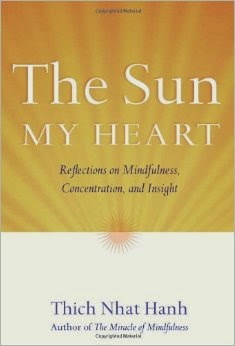~
Dharma Talk given by Thich Nhat Hanh on December 28, 1997 in Plum Village, France
~
Beginning Anew
~
The New Year is a great opportunity to begin anew. Because many people look at the new year, the year to come, with hope. "I will do better next year," you promise yourself...Of course we have made mistakes. Of course we have been not very skillful. Of course we have made ourselves suffer. Of course we have made the people around us suffer. But that does not prevent us from beginning anew and to make things much better next year, or even the next moment. We should look at our suffering in such a way that the suffering can become a positive thing.
~
Of course you have made some mistakes. You have been unskillful. All of us are the same. We always make mistakes. We are very often unskillful. But that does not prevent us from improving, from beginning anew, from transforming. The Buddha said that if you have not suffered, there is no way you can learn. If the Buddha has arrived at full enlightenment, that is just because he had suffered a lot. The suffering was the path that helped him to arrive at full enlightenment, at full compassion, at full understanding. If you want to go to the Buddha, you need your suffering. Because if you do not know what is suffering, then there is no way you can come to the Buddha. You have to come to the Buddha with all your suffering. Suffering is the path. By true suffering you can see the path of enlightenment, the path of compassion, the path of love.
~
According to the teaching of the Buddha, it is by looking deeply into the nature of your sorrow, your pain, of your suffering, that you can discover the way out. If you have not suffered, you cannot go to the Buddha. You have no chance to touch peace, to touch love. It is exactly because of the fact that you have suffered, that now you have an opportunity to recognize the path leading to liberation, leading to love, leading to understanding. Don’t be discouraged when you see that in the past you have suffered and you have made other people suffer. If we know how to handle the suffering, we will be able to profit from our suffering. It is like an organic gardener. If she knows how to handle the garbage, she will get a lot of compost for the growth of her vegetables and her flowers. It is with the compost of the suffering that we can nourish the flower of understanding, of peace, of love. That is why we have to learn how to manage our suffering, how to cherish, how to preserve, how to transform our suffering.”
~
♡♡♡




